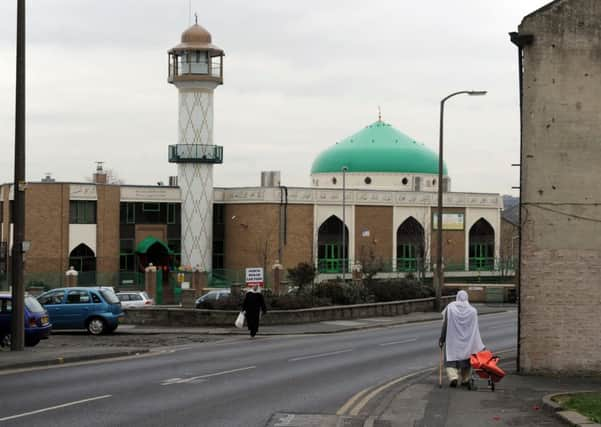Dr Mohammed Ali: British values do not conflict with teachings of Islam


As the founder of a charity that works to build a more peaceful and cohesive society, I have been bringing people together across religious divides since 1990. So why am I concerned about the creation of an organisation that is intended to play a key role in tackling those whose views threaten to tear society apart?
My parents taught me that Islam is a simple religion. It means ‘submission to God’ (‘Allah’ in Arabic), and those who accept this way of life wholeheartedly are called Muslims. We believe our religion is not a new one – it started with Adam, who was the first man. He was followed by 120,000 more prophets, including Moses, Jesus and finally Muhammad. All of them preached the same thing: submission to the will of Allah.
Advertisement
Hide AdAdvertisement
Hide AdWe believe in five things: that there is only one God and that Muhammad was the last prophet; praying five times a day; fasting for one month of the year; giving part of our wealth to the needy; and, if financially and physically able, going on pilgrimage once in a lifetime.
In addition, and this is critical, my parents taught me that I needed other essential qualities in order to be a Muslim – not necessarily a good one but simply qualifying for the name!
These are trustworthiness, truthfulness, standing up for justice and equality between men and women, complying with the law of the land, respecting other people’s beliefs, loving children, honouring and looking after elderly parents and neighbours, and being loyal to any country you call home. These principles are central to the way of life of any true Muslim.
Society is important to us and our relationships with non-Muslims in a country where we are a minority is first and foremost that of humanity.
Advertisement
Hide AdAdvertisement
Hide AdWe are all brothers and sisters as human beings. It is wrong to use religion to justify acts of extremism and terrorism. Those who do so are criminals and should be treated as such.
Muslims who use their faith as an excuse for violence don’t understand what Islam means.
I was taught by my parents that if we are repentant, God will forgive sins committed against His directions because He is merciful and kind. However, if we harm another human being, irrespective of his or her beliefs, we can be pardoned by that person alone.
Since 2014, the Government has insisted on the teaching of ‘fundamental British values’ in schools. According to Ofsted, these are democracy, the rule of law, individual liberty and tolerance of those with different faiths and beliefs, including atheists and agnostics. Sound familiar?
Advertisement
Hide AdAdvertisement
Hide AdSo it’s painful when people doubt the integrity of those of us who follow Islam and live in the UK. They often ask us: ‘Do you see yourself as British or as a Muslim?’ What a silly question to ask. One part of it refers to nationality and the other to faith. I will still be a Muslim wherever I settle, but my citizenship might change if I left Britain. (This is extremely unlikely – I love the UK and would not want to live anywhere else).
The people who ask these irrelevant questions probably have ancestors who arrived here two or three hundred years ago.
If you keep going back in time, everyone living in Britain today is descended from someone who arrived on this island from somewhere else. We are all foreigners.
And we can all feel like strangers in our own country when we live in communities blighted by unemployment, low incomes, educational underachievement and poor health outcomes. Poverty affects one in four children living in the UK today – rising to almost one in two in constituencies like Bradford East and Bradford West. Extremism of all sorts – whether Islamist or far-right – feeds on disaffection and alienation and, with much of the country still reeling from the impact of austerity and public sector spending cuts, more and more people can be forgiven for feeling that they do not have a stake in society.
Advertisement
Hide AdAdvertisement
Hide AdSo I question whether the creation of the new commission will be money well spent.
The budget for Prevent, the Government’s controversial initiative supporting people at risk of joining extremist groups and taking part in terrorist activities, is thought to be £40m a year. Yet critics say that it has backfired badly, creating division by trampling over human rights and focusing disproportionately on Muslim communities.
Surely the best way to build a peaceful society characterised by respect and tolerance for people with different beliefs would be to invest in making sure that opportunities are open to all and everyone is able to share in the country’s prosperity – regardless of faith or ethnicity.
Dr Mohammed Ali OBE is the founder and chief executive of QED Foundation, a Bradford-based national charity set up in 1990 that supports the social and economic advancement of disadvantaged ethnic minority communities.